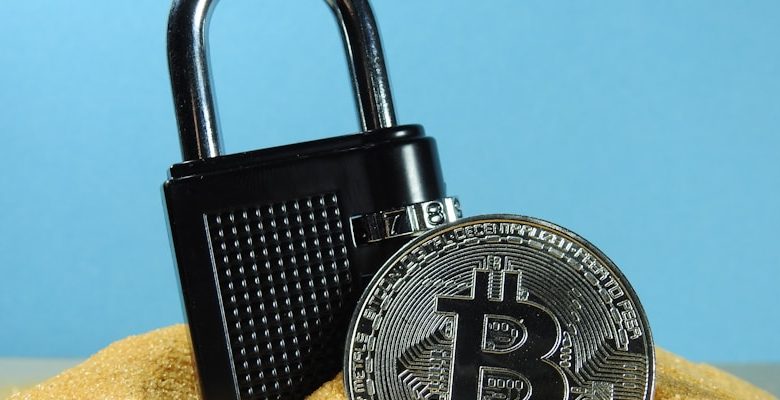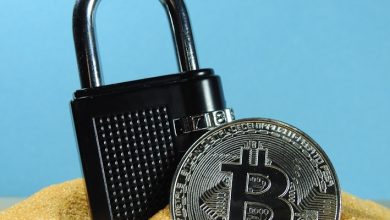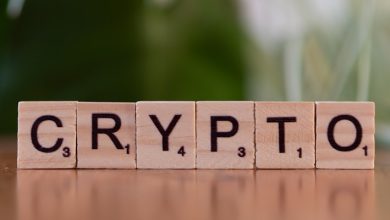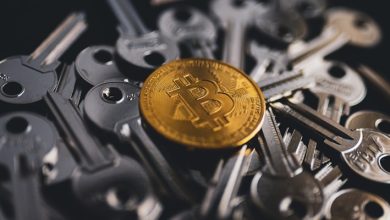The Role of Decentralized Exchanges in Reducing Security Risks

- Understanding the concept of decentralized exchanges
- Comparison of centralized and decentralized exchanges
- Benefits of using decentralized exchanges for trading
- Challenges faced by decentralized exchanges in terms of security
- Strategies for mitigating security risks on decentralized exchanges
- Future outlook for decentralized exchanges and security measures
Understanding the concept of decentralized exchanges
Decentralized exchanges (DEXs) are platforms that allow users to trade cryptocurrencies directly with one another without the need for a central authority to facilitate the transactions. This means that users retain control of their funds throughout the trading process, reducing the risk of security breaches that can occur on centralized exchanges.
One key concept to understand when it comes to DEXs is the use of smart contracts. These self-executing contracts are built on blockchain technology and automatically enforce the terms of a trade when certain conditions are met. This eliminates the need for a third party to oversee the transaction, making DEXs more secure and less susceptible to hacking or fraud.
Another important aspect of decentralized exchanges is the use of non-custodial wallets. Unlike centralized exchanges, which hold users’ funds in a central wallet, DEXs allow users to trade directly from their own wallets. This means that users are in full control of their private keys and funds at all times, reducing the risk of theft or loss.
Overall, decentralized exchanges play a crucial role in reducing security risks in the cryptocurrency market by providing a more secure and transparent trading environment. By leveraging smart contracts and non-custodial wallets, DEXs offer users greater control over their funds and transactions, ultimately enhancing the overall security of the ecosystem.
Comparison of centralized and decentralized exchanges
When comparing centralized exchanges with decentralized exchanges, it is important to consider the key differences between the two. Centralized exchanges are operated by a single entity and require users to deposit their funds into the exchange’s wallets. This poses a security risk as the exchange holds custody of the funds, making them vulnerable to hacking and theft. On the other hand, decentralized exchanges operate on a peer-to-peer network, allowing users to trade directly with one another without the need for a central authority.
Decentralized exchanges offer greater security as they do not hold users’ funds in a central wallet. Instead, funds are stored in users’ personal wallets, reducing the risk of hacking and theft. Additionally, decentralized exchanges do not require users to undergo a lengthy verification process, providing a more anonymous trading experience.
Centralized exchanges, on the other hand, often have more liquidity and offer a wider range of trading pairs. They also provide advanced trading features such as margin trading and stop-loss orders. However, the security risks associated with centralized exchanges make them less attractive to users concerned about the safety of their funds.
In conclusion, decentralized exchanges play a crucial role in reducing security risks for traders by providing a more secure and private trading environment. While centralized exchanges may offer more advanced features and higher liquidity, the security vulnerabilities they pose make decentralized exchanges a safer option for those prioritizing the protection of their funds.
Benefits of using decentralized exchanges for trading
Decentralized exchanges offer several benefits for traders looking to reduce security risks in their transactions. One advantage of using decentralized exchanges is the increased security they provide through the use of smart contracts. These contracts help automate the trading process and eliminate the need for a central authority to hold users’ funds. This reduces the risk of hacking or fraud that can occur on centralized exchanges.
Another benefit of decentralized exchanges is the privacy they offer to traders. Without the need to create an account or provide personal information, users can trade cryptocurrencies anonymously. This anonymity helps protect traders from potential identity theft or other security breaches that can occur when using centralized exchanges.
Additionally, decentralized exchanges are typically available 24/7, allowing traders to make transactions at any time without being restricted by the operating hours of a centralized exchange. This around-the-clock availability can be especially beneficial for traders in different time zones or those looking to take advantage of market opportunities outside of regular trading hours.
Furthermore, decentralized exchanges often have lower fees compared to centralized exchanges, as they do not require the same infrastructure or regulatory compliance. This can result in cost savings for traders, allowing them to keep more of their profits from trading activities.
Overall, decentralized exchanges offer a secure, private, and cost-effective way for traders to conduct transactions without the security risks associated with centralized exchanges. By leveraging the benefits of decentralized exchanges, traders can mitigate potential threats to their assets and trade with peace of mind.
Challenges faced by decentralized exchanges in terms of security
Decentralized exchanges (DEXs) bring many benefits in terms of security and privacy. However, they also face several challenges in maintaining security standards. One major challenge is the vulnerability of smart contracts to hacks and exploits. These vulnerabilities can be exploited by malicious actors to steal funds or manipulate trades. Another challenge is the lack of regulatory oversight, which can make it difficult to hold bad actors accountable for their actions.
Moreover, DEXs often struggle with low liquidity, which can make them more susceptible to price manipulation and other forms of market abuse. In addition, the lack of a central authority to oversee transactions can make it harder to detect and prevent fraudulent activities. This lack of oversight also means that users may have limited recourse in the event of a dispute or security breach.
Furthermore, the decentralized nature of DEXs can make it harder to implement security measures such as Know Your Customer (KYC) and Anti-Money Laundering (AML) checks. Without these measures in place, DEXs can become targets for money launderers and other criminals looking to exploit the anonymity offered by decentralized platforms.
Overall, while DEXs offer many advantages in terms of security and privacy, they also face significant challenges in maintaining security standards. It is important for users to be aware of these challenges and take steps to protect themselves when using decentralized exchanges.
Strategies for mitigating security risks on decentralized exchanges
When it comes to decentralized exchanges, there are several strategies that can be implemented to mitigate security risks effectively. By taking proactive measures, users can minimize the chances of falling victim to security breaches and hacks. Here are some key strategies to consider:
- Implementing multi-factor authentication: One of the most effective ways to enhance security on decentralized exchanges is by requiring users to go through a multi-factor authentication process. This adds an extra layer of protection by making it harder for unauthorized individuals to gain access to accounts.
- Regular security audits: Conducting regular security audits can help identify vulnerabilities in the system before they are exploited by malicious actors. By staying proactive and addressing any potential security issues promptly, decentralized exchanges can better protect their users.
- Utilizing cold wallets: Storing a significant portion of funds in cold wallets, which are not connected to the internet, can help prevent large-scale hacks that target hot wallets. Cold wallets offer an additional level of security by keeping assets offline and out of reach from cyber threats.
- Educating users: Providing users with the necessary information and resources to protect themselves can go a long way in reducing security risks. By educating users on best practices for securing their accounts and assets, decentralized exchanges can empower their user base to make informed decisions.
- Collaborating with security experts: Partnering with cybersecurity experts and firms can provide decentralized exchanges with valuable insights and expertise in mitigating security risks. By leveraging the knowledge of professionals in the field, exchanges can stay ahead of emerging threats and implement effective security measures.
Future outlook for decentralized exchanges and security measures
The future outlook for decentralized exchanges (DEX) looks promising as they continue to gain popularity among cryptocurrency traders and investors. DEX offers a more secure and transparent way of trading digital assets compared to centralized exchanges. However, security risks still exist, and it is essential to implement robust security measures to protect users’ funds and data.
One of the key security measures that DEX can implement is multi-signature wallets, which require multiple private keys to authorize transactions. This adds an extra layer of security and reduces the risk of unauthorized access to funds. Additionally, using smart contracts to automate trading processes can help prevent human error and mitigate the risk of hacking.
Another important security measure is conducting regular security audits to identify and address vulnerabilities in the DEX platform. Working with cybersecurity experts and bug bounty programs can help uncover potential threats and ensure that the platform is secure for users to trade on.
Furthermore, implementing decentralized identity verification systems can enhance the security of DEX by ensuring that only authorized users can access the platform. This can help prevent identity theft and account takeovers, which are common security risks in the cryptocurrency space.
In conclusion, the future of decentralized exchanges looks promising, but it is crucial to prioritize security measures to protect users’ funds and data. By implementing multi-signature wallets, conducting security audits, and using decentralized identity verification systems, DEX can enhance security and build trust among users.



